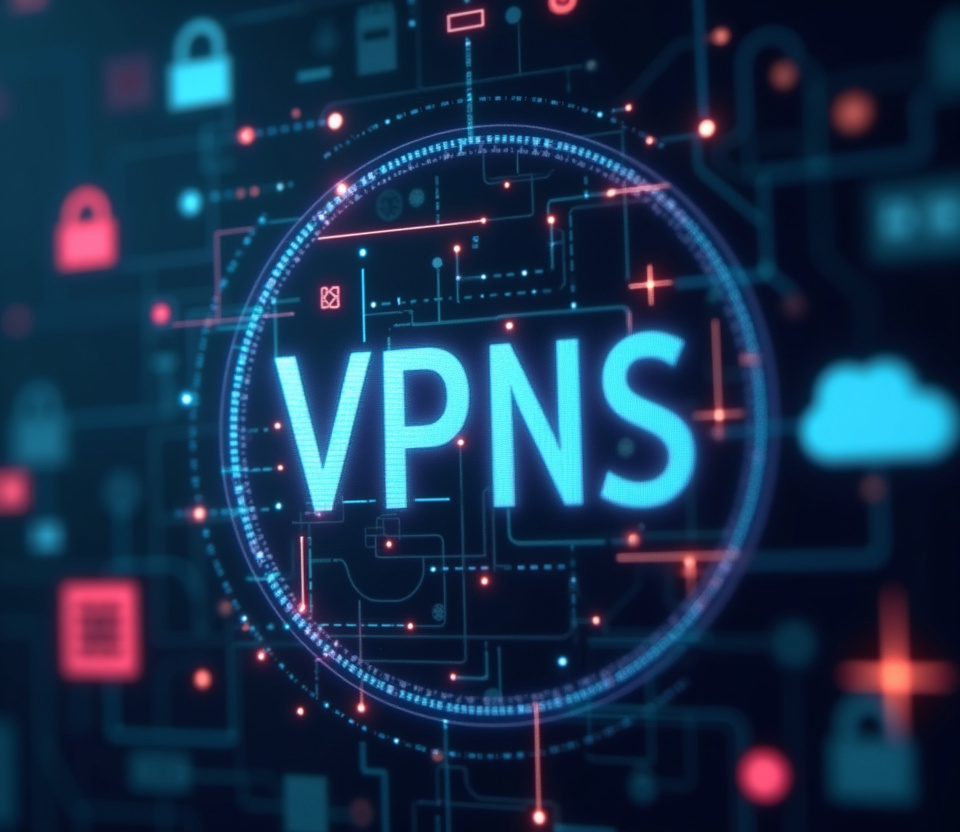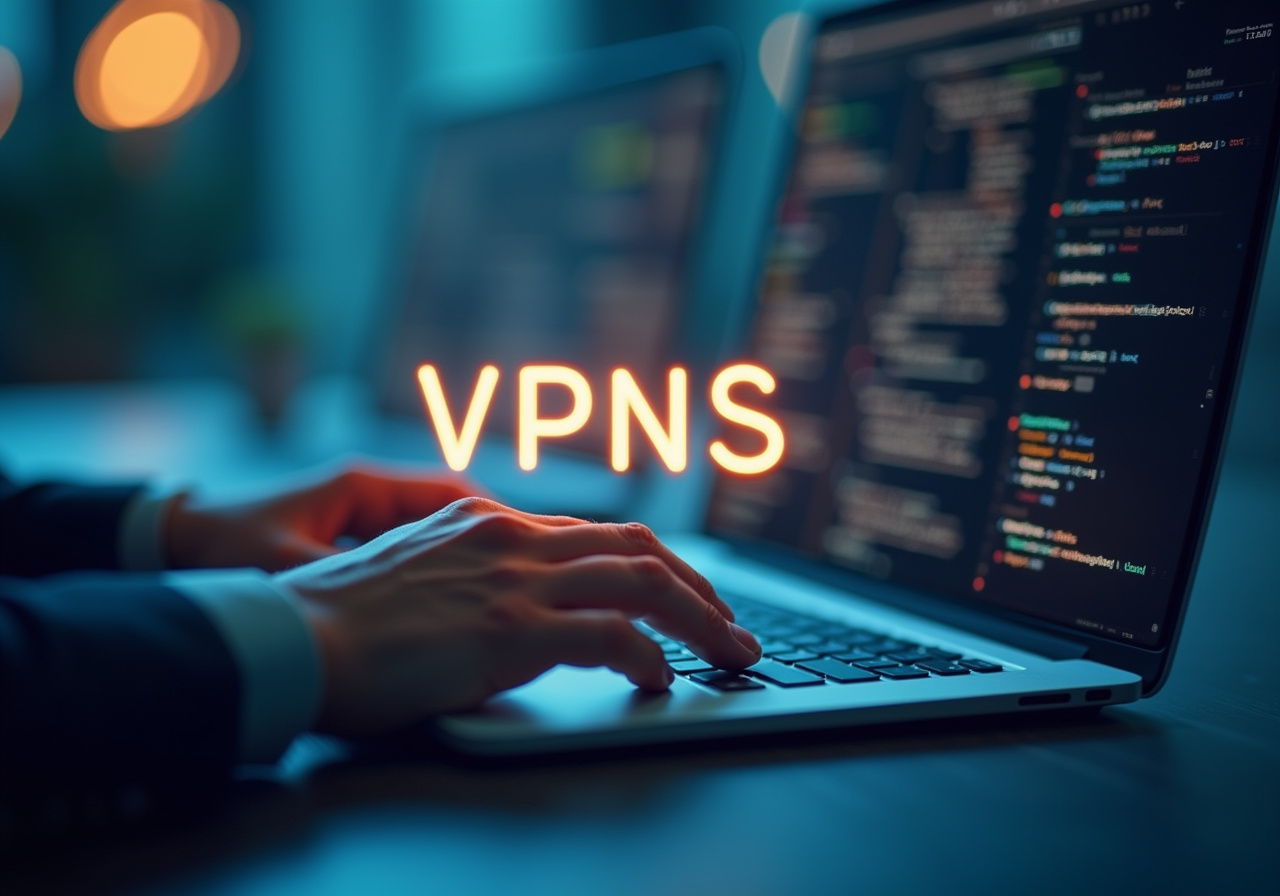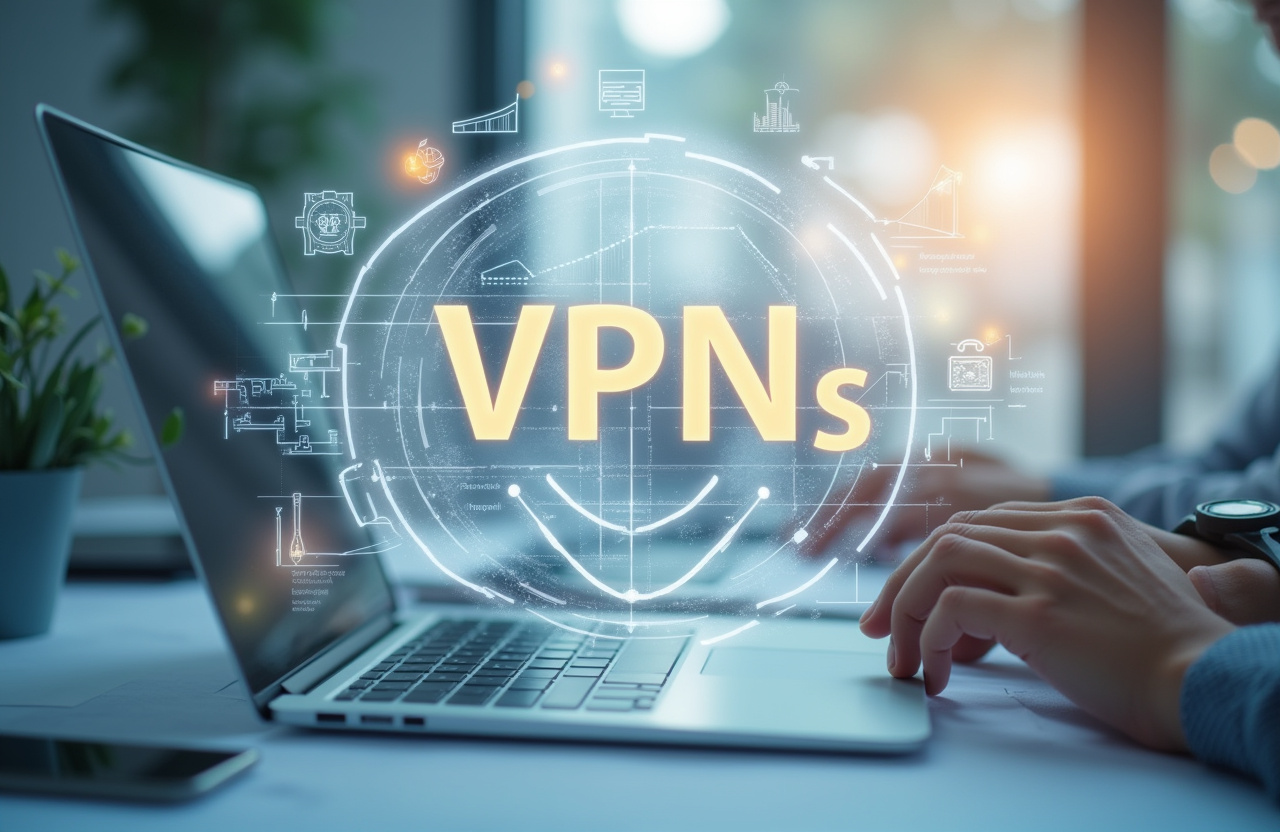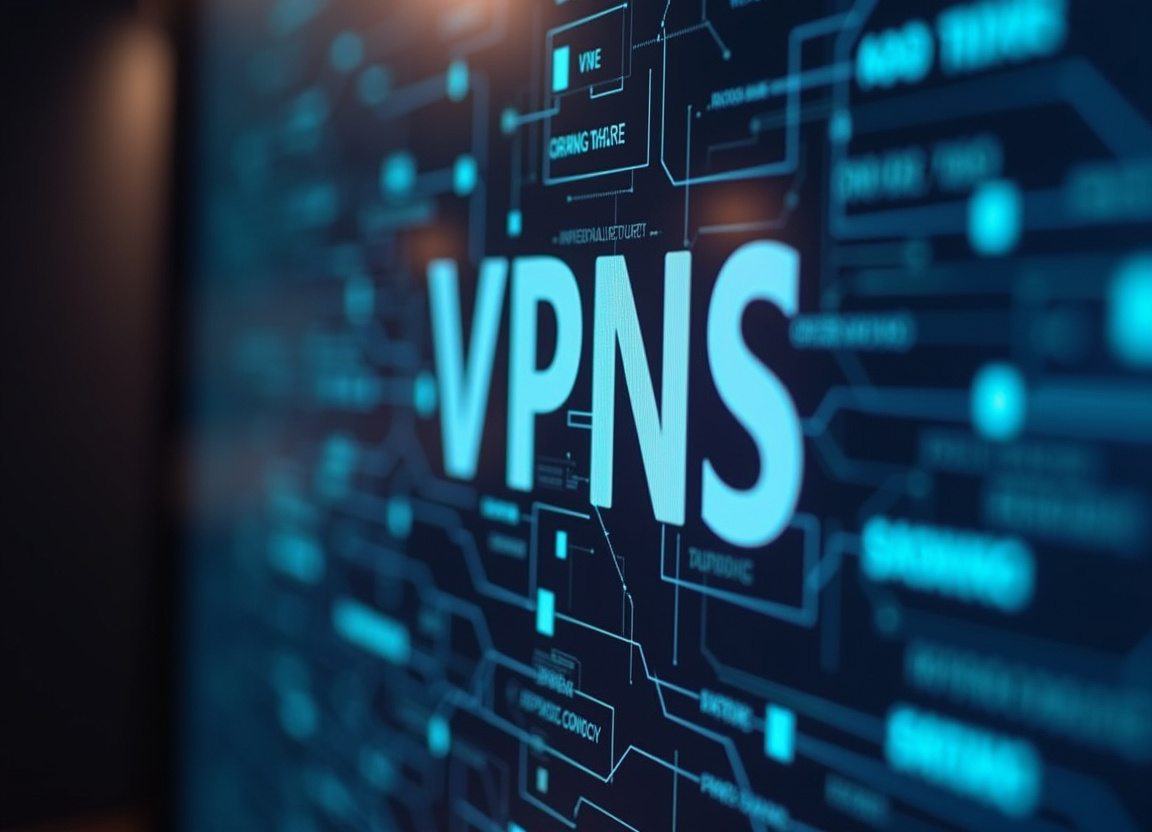VPNs for Cybersecurity Firms: Protecting Client Data
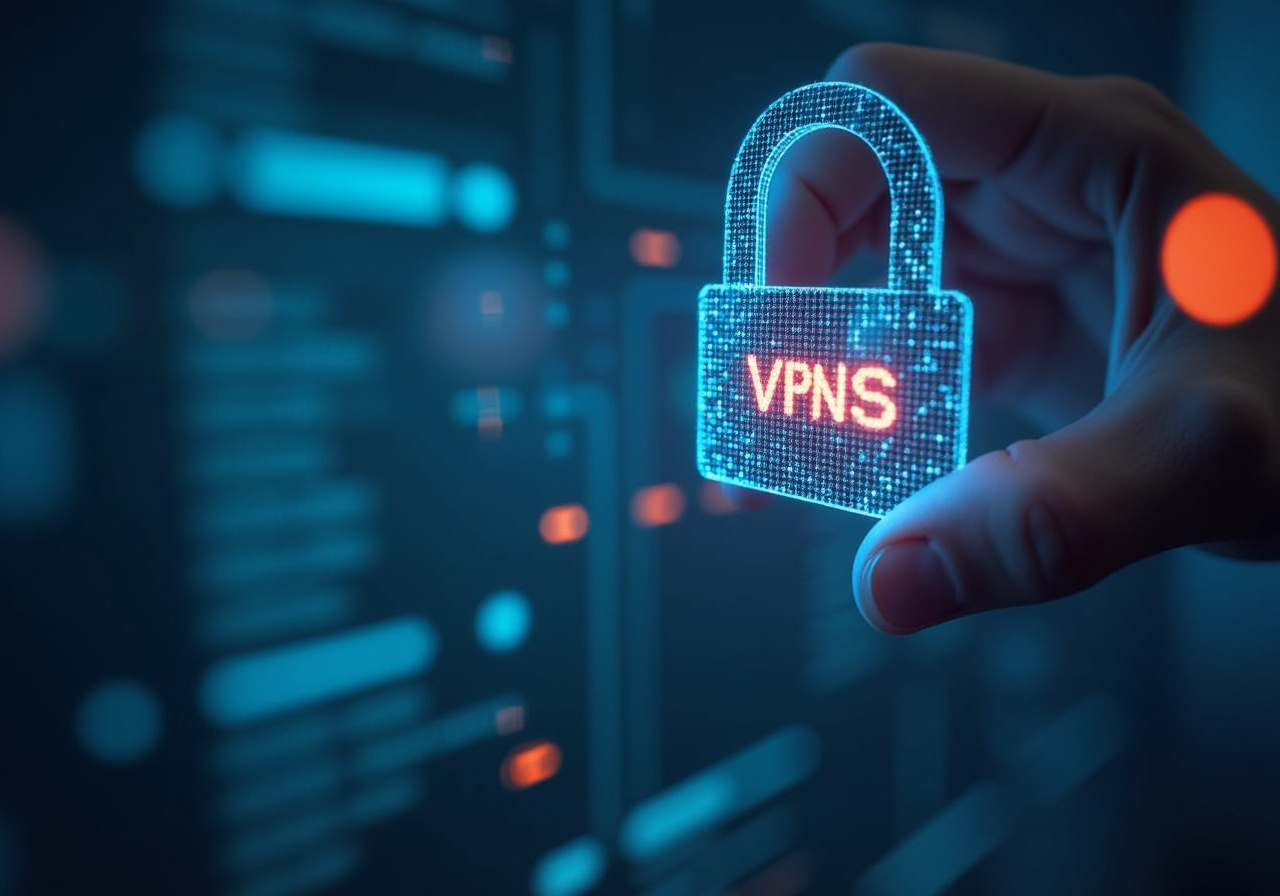
Table of Contents
Introduction: The Critical Need for VPNs in Cybersecurity
In the contemporary digital landscape, where cyber threats are increasingly sophisticated and pervasive, cybersecurity firms stand as the frontline defenders, entrusted with the critical responsibility of protecting their clients' sensitive data and maintaining the integrity of their digital assets. These firms handle a wealth of confidential information, ranging from financial records and intellectual property to personally identifiable information and strategic business plans. The trust placed in these firms is immense, and a single security breach can have catastrophic consequences, leading to financial losses, reputational damage, legal liabilities, and erosion of client confidence.
Therefore, cybersecurity firms must adopt a holistic approach to security, employing a multi-layered defense strategy that encompasses robust technologies, well-defined policies, and comprehensive training. A vital component of this security arsenal is the strategic implementation of a Virtual Private Network (VPN), a technology that provides a secure and encrypted connection between the firm's network and the internet, effectively shielding sensitive data from prying eyes and malicious actors. This article delves into the critical role of VPNs in fortifying the security posture of cybersecurity firms, emphasizing the protection of client data, the maintenance of service integrity, the assurance of secure interactions, and the strategic utilization of VPN technology within the cybersecurity ecosystem.
We will explore the various facets of VPN implementation, from selecting the appropriate VPN protocols and configuring security settings to establishing clear policies and conducting regular audits. Furthermore, we will examine the challenges and considerations associated with VPN deployment, ensuring that cybersecurity firms can make informed decisions and maximize the benefits of this essential security tool. A 'cybersecurity VPN' acts as a secure tunnel for all internet traffic originating from or destined for the cybersecurity firm's network.
This encryption process transforms readable data into an unreadable format, rendering it unintelligible to unauthorized individuals who may attempt to intercept it. This is particularly crucial for cybersecurity firms that handle highly confidential client data. By encrypting this data in transit, a VPN significantly reduces the risk of data breaches and ensures compliance with stringent data privacy regulations such as GDPR, CCPA, and HIPAA.
Beyond encryption, VPNs also provide a crucial layer of anonymity by masking the cybersecurity firm's IP address. This makes it more difficult for attackers to identify and target the firm's network, reducing the risk of targeted attacks. Given that cybersecurity firms are often high-value targets for cybercriminals, this added layer of anonymity can be invaluable in preventing sophisticated attacks, including distributed denial-of-service (DDoS) attacks and ransomware campaigns.
Furthermore, VPNs can be strategically employed to secure remote access to the cybersecurity firm's network. With the increasing prevalence of remote work and the rise of distributed teams, it is essential to provide employees with secure access to company resources from any location. A VPN allows employees to connect to the firm's network through an encrypted tunnel, ensuring that their data remains protected even when they are working from home, traveling, or accessing the internet from public Wi-Fi networks.
This is especially critical for cybersecurity firms, as remote access points can often be a weak link in the security chain, susceptible to man-in-the-middle attacks and credential theft. The implementation of a VPN also plays a vital role in maintaining the 'service integrity' of a cybersecurity firm. By securing the firm's internal network and protecting its data from unauthorized access, VPNs help to ensure that the firm can continue to provide uninterrupted and reliable services to its clients.
In the event of a cyberattack, a VPN can help to contain the damage and prevent attackers from disrupting the firm's operations, minimizing downtime and ensuring business continuity. Furthermore, VPNs can facilitate secure communication and collaboration between cybersecurity firms and their clients. By establishing an encrypted channel for communication, VPNs ensure that sensitive information shared between the firm and its clients remains confidential and protected from eavesdropping.
This is particularly important when discussing sensitive topics such as security vulnerabilities, incident response plans, and data breach investigations. The use of a secure communication channel reinforces trust and ensures that sensitive information is not compromised during these critical interactions, fostering stronger client relationships and enhancing the firm's reputation.
VPNs: Core Functionality and Benefits for Data Protection
The strategic incorporation of a 'VPN for technology' within a cybersecurity firm goes beyond the fundamental aspects of data encryption and IP address masking; it necessitates a meticulous approach to architecting a comprehensive security solution tailored to the unique demands and challenges inherent in safeguarding digital assets. The selection of appropriate VPN protocols forms a cornerstone of this strategy. Modern protocols such as WireGuard and IKEv2/IPsec provide enhanced speed, stability, and security compared to legacy protocols like PPTP, which is now considered obsolete due to its known vulnerabilities.
WireGuard, in particular, is gaining traction for its lightweight design and superior performance, making it an attractive option for cybersecurity firms that require high-speed, secure connections. IKEv2/IPsec, on the other hand, offers robust security features and is widely supported across various platforms. The implementation of multi-factor authentication (MFA) alongside the VPN adds an indispensable layer of security.
MFA mandates users to furnish multiple forms of verification, such as a password combined with a one-time code generated by a mobile app or a biometric scan, before gaining access to the network. This significantly mitigates the risk of unauthorized access, even if an attacker manages to compromise a user's password through phishing or other means. MFA provides a formidable barrier against credential-based attacks, enhancing the overall security posture of the cybersecurity firm.
Careful configuration of the VPN is paramount to ensure that it delivers the intended level of security. This entails configuring the VPN client software to automatically connect when the device starts, thereby ensuring that all internet traffic is automatically routed through the encrypted tunnel. Disabling split tunneling is also crucial for maintaining security.
While split tunneling may appear convenient by allowing some traffic to bypass the VPN, it introduces a significant security risk by exposing certain applications or data streams to direct internet access, thereby negating the security benefits of the VPN for those specific pathways. All traffic should be forced through the VPN to ensure comprehensive protection. Regular updates of the VPN software are essential for patching newly discovered security vulnerabilities.
Software vendors routinely release updates to address security flaws, and it is imperative for cybersecurity firms to promptly install these updates to protect their systems from exploitation. Automated update mechanisms can help to ensure that VPN software is always up-to-date with the latest security patches. Cybersecurity firms must also be cognizant of the potential performance impact of using a VPN.
Encryption and decryption processes can introduce overhead to network traffic, which can potentially slow down internet speeds. However, modern VPN protocols and optimized VPN software can minimize this performance impact. It is recommended to conduct thorough testing to determine the optimal VPN configuration that balances security and performance.
Factors such as VPN server location, network latency, and the processing power of the VPN device can all influence performance. Another critical aspect of VPN implementation is ensuring proper logging and monitoring of VPN activity. By logging VPN connections, disconnections, authentication attempts, and other relevant events, cybersecurity firms can gain valuable insights into network usage patterns and identify potential security threats.
This data can be utilized to detect unauthorized access attempts, track suspicious activity, investigate security incidents, and identify potential policy violations. However, it is crucial to implement logging and monitoring in compliance with applicable data privacy regulations, such as GDPR and CCPA, which mandate specific requirements for the collection, storage, and processing of personal data. Anonymization or pseudonymization techniques can be employed to protect user privacy while still enabling effective security monitoring.
Alongside technical implementations, establishing clear policies and procedures is equally important. Cybersecurity firms must develop and enforce comprehensive VPN usage policies that outline acceptable use, security requirements, and disciplinary actions for violations. Employees should be provided with thorough training on secure VPN usage, covering topics such as choosing strong passwords, recognizing and avoiding phishing attacks, and reporting suspicious activity.
Regular security audits should be conducted to assess the effectiveness of the VPN implementation and identify any potential weaknesses or vulnerabilities. An incident response plan should be in place to address any security breaches or incidents involving the VPN. This plan should outline the steps to be taken to contain the damage, investigate the incident, restore the system to a secure state, and notify affected parties as required by law.
A well-defined incident response plan ensures that the cybersecurity firm can respond promptly and effectively to any security incidents, minimizing the potential impact on its operations and reputation.
Implementing VPNs: Protocols, Infrastructure, and Best Practices
Maintaining 'interaction security' within a cybersecurity firm's ecosystem necessitates a multi-faceted approach that extends beyond the technical implementation of a VPN and delves into the realms of human behavior, policy enforcement, and continuous monitoring. The human element remains a significant vulnerability, as even the most sophisticated VPN infrastructure can be compromised by human error or malicious intent. Social engineering attacks, for example, can target employees to trick them into divulging their VPN credentials or bypassing security measures.
Therefore, ongoing security awareness training is essential to educate employees about the risks of phishing, malware, and other social engineering tactics. This training should emphasize the importance of verifying the authenticity of emails and websites, avoiding suspicious links and attachments, and reporting any unusual activity to the IT security team. Regular phishing simulations can be conducted to test employees' awareness and identify those who require additional training.
Furthermore, cybersecurity firms should implement strong password policies that require employees to use complex and unique passwords, change them regularly, and avoid reusing passwords across different accounts. Password managers can be used to help employees generate and store strong passwords securely. The use of password vaults and multi-factor authentication for these vaults adds further protection.
In addition to password policies, cybersecurity firms should implement strict access control policies that limit employees' access to sensitive data and systems based on their job roles and responsibilities. The principle of least privilege should be applied, ensuring that employees only have access to the information and resources they need to perform their duties. Regular access reviews should be conducted to ensure that employees' access rights are still appropriate and that any unnecessary access is revoked promptly.
Policy enforcement is crucial for ensuring that employees adhere to the cybersecurity firm's security policies and procedures. VPN usage policies, access control policies, and password policies should be clearly documented and communicated to all employees. Disciplinary actions should be clearly defined for violations of these policies.
Regular audits should be conducted to verify compliance with the firm's security policies. These audits should include reviews of VPN logs, access control lists, and employee training records. Continuous monitoring is essential for detecting and responding to security incidents in a timely manner.
Security information and event management (SIEM) systems can be used to collect and analyze security logs from various sources, including VPN servers, firewalls, and intrusion detection systems. These systems can provide real-time alerting for suspicious activity, such as unauthorized access attempts, malware infections, and data exfiltration. Incident response plans should be in place to guide the firm's response to security incidents.
These plans should outline the steps to be taken to contain the damage, investigate the incident, restore the system to a secure state, and notify affected parties as required by law. Regular incident response exercises should be conducted to test the effectiveness of the firm's incident response plans. In addition to the above measures, cybersecurity firms should consider implementing data loss prevention (DLP) solutions to prevent sensitive data from leaving the firm's control.
DLP solutions can monitor network traffic, email communications, and file transfers to detect and block the unauthorized transmission of confidential information. DLP solutions can also be used to encrypt sensitive data at rest and in transit. Regular vulnerability assessments and penetration testing should be conducted to identify and address any security weaknesses in the firm's systems and infrastructure.
Vulnerability assessments can identify known vulnerabilities in software and hardware, while penetration testing can simulate real-world attacks to test the effectiveness of the firm's security controls. The results of these assessments should be used to prioritize remediation efforts and improve the firm's overall security posture. Finally, cybersecurity firms should stay up-to-date on the latest cyber threats and security best practices.
This can be achieved by subscribing to security newsletters, attending industry conferences, and participating in threat intelligence sharing programs. By staying informed about the evolving threat landscape, cybersecurity firms can better protect themselves and their clients from emerging cyber threats.
VPNs for Services: Enhancing Security and Privacy
The practical implementation of a 'VPN for technology' within a cybersecurity firm necessitates a meticulous selection process, considering factors beyond mere functionality. The chosen VPN solution must align with the firm's specific needs, technical capabilities, and security objectives. A critical aspect of this selection process is the assessment of the VPN provider's security reputation and track record.
Cybersecurity firms should carefully research potential VPN providers, examining their security certifications, audit reports, and history of security incidents. Opting for a provider with a proven commitment to security and transparency is paramount. Furthermore, it is crucial to evaluate the VPN provider's data logging policies.
While some VPN providers claim to offer "no-logs" service, it is important to scrutinize their privacy policies and terms of service to verify the accuracy of this claim. Ideally, the VPN provider should operate under a jurisdiction with strong data privacy laws and be transparent about its data retention practices. Cybersecurity firms should also consider the VPN solution's scalability and performance.
The chosen VPN should be able to accommodate the firm's growing bandwidth demands and support a large number of concurrent users without sacrificing performance. Load balancing and server redundancy features can help to ensure high availability and optimal performance. Integration with existing security infrastructure is another important consideration.
The VPN solution should seamlessly integrate with the firm's firewalls, intrusion detection systems, and security information and event management (SIEM) systems. This integration allows for centralized monitoring and management of security events, improving the firm's overall security posture. Beyond the core VPN functionality, cybersecurity firms should also consider additional security features, such as malware filtering, intrusion prevention, and web filtering.
These features can provide an additional layer of protection against cyber threats. The VPN solution should also support a variety of authentication methods, including multi-factor authentication (MFA), to enhance security. Once a VPN solution has been selected, the implementation process should be carefully planned and executed.
The first step is to configure the VPN server and client software according to the firm's security policies. This includes configuring encryption protocols, authentication methods, and access control rules. Next, the VPN client software should be deployed to all of the firm's endpoints, including laptops, desktops, and mobile devices.
The deployment process should be automated to ensure consistency and efficiency. Employees should be provided with training on how to use the VPN software and how to troubleshoot common problems. The VPN implementation should be thoroughly tested to ensure that it is functioning correctly and that it is providing the intended level of security.
This testing should include penetration testing to identify any vulnerabilities in the VPN infrastructure. Once the VPN implementation has been completed, it is important to continuously monitor its performance and security. VPN logs should be regularly reviewed to identify any suspicious activity.
Security alerts should be configured to notify the IT security team of any potential security incidents. Regular vulnerability assessments and penetration testing should be conducted to identify and address any security weaknesses in the VPN infrastructure. The VPN solution should be regularly updated to patch security vulnerabilities and improve performance.
The implementation and management of a VPN within a cybersecurity firm is an ongoing process that requires constant vigilance and adaptation. By carefully selecting and implementing a VPN solution, cybersecurity firms can significantly enhance their security posture and protect their clients' data from cyber threats.
In conclusion, the integration of a robust 'cybersecurity VPN' solution is not merely an optional add-on but a fundamental necessity for cybersecurity firms operating in today's threat-laden digital ecosystem. The multifaceted benefits of a well-implemented VPN strategy extend far beyond simple encryption, encompassing enhanced 'client data security', fortified 'service integrity', secure 'interaction security', and a comprehensive 'VPN for technology' approach to safeguard sensitive information and maintain operational resilience. By establishing secure and encrypted connections, cybersecurity firms can effectively shield valuable client data from unauthorized access, mitigate the risk of data breaches, and ensure compliance with stringent data privacy regulations.
The implementation of strong authentication mechanisms, such as multi-factor authentication, further strengthens the security posture and prevents unauthorized access to critical resources. Moreover, VPNs provide a crucial layer of anonymity by masking IP addresses, making it more difficult for attackers to identify and target the firm's network. This is particularly important for cybersecurity firms, which are often high-value targets for cybercriminals seeking to exploit vulnerabilities and steal sensitive information.
The ability to secure remote access to the firm's network is another significant advantage of VPNs, allowing employees to work securely from any location, without compromising the confidentiality of client data. This is especially critical in today's increasingly distributed work environment, where remote access points can often be a weak link in the security chain. A VPN also plays a vital role in maintaining the integrity of the cybersecurity firm's services by preventing disruptions caused by cyberattacks.
By securing the firm's internal network and protecting its data from unauthorized access, VPNs help to ensure that the firm can continue to provide uninterrupted and reliable services to its clients, even in the face of adversity. Furthermore, VPNs facilitate secure communication and collaboration between cybersecurity firms and their clients, ensuring that sensitive information is shared securely and confidentially. This is essential for building trust and maintaining strong client relationships.
However, the successful implementation of a VPN strategy requires careful planning, execution, and ongoing monitoring. Cybersecurity firms must carefully select a VPN solution that aligns with their specific needs and security objectives, considering factors such as security reputation, data logging policies, scalability, performance, and integration with existing security infrastructure. Clear policies and procedures should be established to govern VPN usage, and employees should be provided with comprehensive training on secure VPN practices.
Regular security audits and vulnerability assessments should be conducted to identify and address any weaknesses in the VPN infrastructure. Continuous monitoring of VPN logs and security alerts is essential for detecting and responding to security incidents in a timely manner. By adopting a holistic approach to VPN security, cybersecurity firms can significantly enhance their ability to protect client data, maintain service integrity, and ensure secure interactions.
This, in turn, will build trust, enhance reputation, and provide a competitive advantage in the marketplace. In the ever-evolving landscape of cyber threats, a robust VPN strategy is not just a best practice, but a critical imperative for cybersecurity firms seeking to safeguard their clients' data and maintain their position as trusted guardians of the digital realm. The investment in a well-implemented VPN solution is an investment in the future security and success of the firm.
Stay Updated
Get the latest VPN news, tips, and exclusive deals to your inbox.
